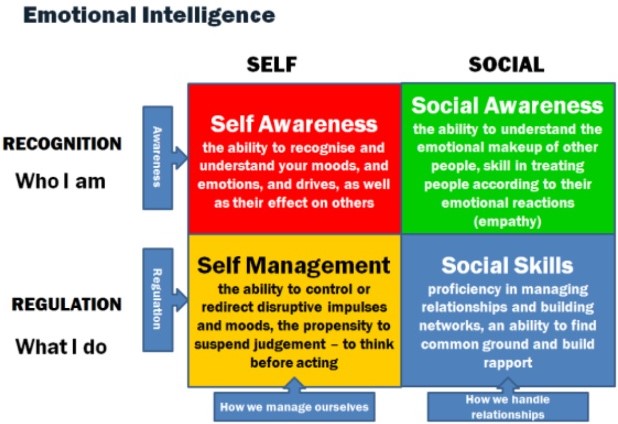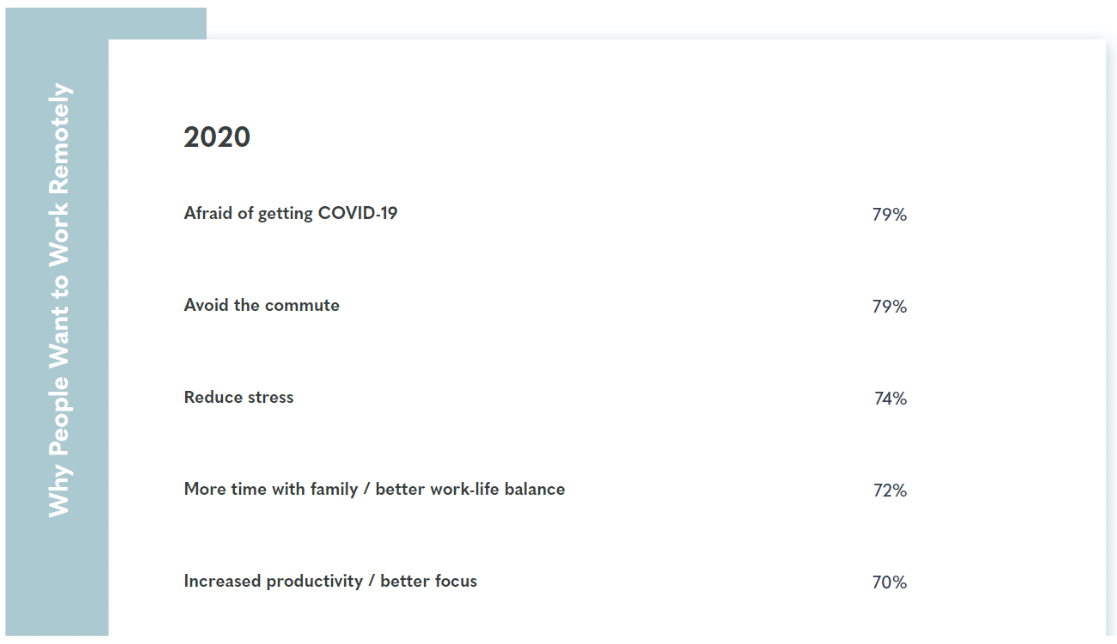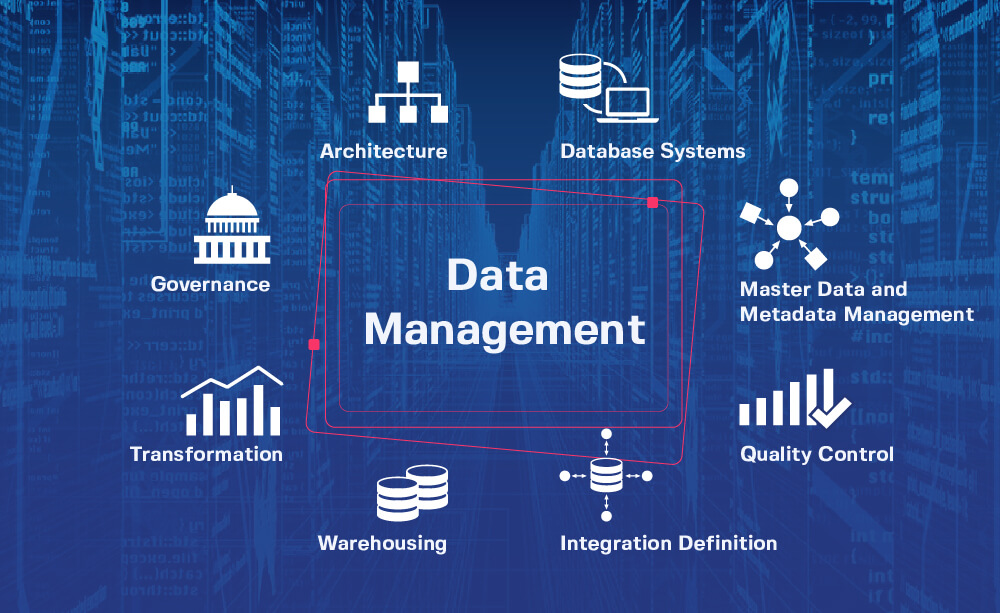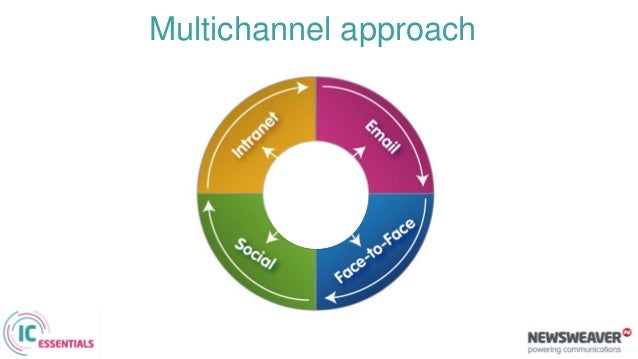Part
01
of one
Part
01
Skills for Thriving in a Hybrid Work Environment
Some self-management skills employees need for thriving in a hybrid work environment include trust, communication, and social awareness. Trust and clarity of work goals cause the brain to release oxytocins which makes employees enjoy work and employees who produced oxytocins had about 76% engagement and were about 50% more productive. Hybrid workplace managers will need skills for managing a dispersed workforce, strong data management, and effective use of digital technology. Companies that are data-driven are about 23 times more likely to acquire customers, those that use big data increase their profit by about 8%, and about 62% of retail businesses indicated that they had gained a competitive advantage due to efficient data management. Hybrid workplace leaders need to have skills for using diverse communication channels, providing autonomy to team members, and communicating the big picture.
Employees
Trust
- The Salesforce Republic highlighted that trust is among the key skills for employees working in hybrid environments. Trust enables employees to be confident that their colleagues will do the right things, for example, keeping work deadlines. To enhance trust, it is important that each employee be clear on their roles and responsibilities at the workplace.
- LinkedIn defines trust as the willingness to share shortcomings, the ability to accommodate positive conflict over ideas and concepts, having confidence that colleagues are committed to set goals, and the readiness to prevail upon colleagues to fulfill their job obligations.
- Indeed provided a list of options employees have for building trust in peers, including practicing honesty, keeping promises, taking time to understand colleagues, admitting mistakes, and value every team member.
- Work Well Practice reported that trust and clarity of work goals cause the brain to release oxytocins which make employees enjoy work. Studies show that employees and teams that produced these chemicals found work to be fun and companies with employees who produced oxytocins had about 76% employee engagement and were about 50% more productive.
Communication
- According to the Salesforce Republic, confusing communication channels is a common occurrence in hybrid work environments. Employees must be clear on the official channels of communication so that important information is recorded and shared. Effective communication in a hybrid working system reduces the feeling of loneliness when working remotely and increases the sense of friendship among colleagues.
- MBA Notes defines communication as the flow of thought or information between two or more persons which causes mutual understanding and desired action. The objectives of communication include information, integration, and decision-making.
- An article published by the Southern New Hampshire University indicated that employees can enhance their communication skills by learning how to listens to others, learning to speak well person-to-person and in groups, mastering the art of telephone conversation, learning to write effective emails, learning to work well with remote teams, and enhancing their software skills.
- Expert Market reported that companies where employees communicate effectively increased productivity by about 25%, about 97% of employees revealed that communication affects their performance, poor communication costs companies that have an average workforce of 100 employees about $420,000 per year, and employees who can get their voice heard increase productivity about 5 times.
Others' Awareness
- The Salesforce Republic highlighted that others' awareness is an important skill in hybrid organizations and it involves employees making an effort to understand colleagues’ strengths, weaknesses, struggles, and feelings. Others’ awareness leads to high levels of teamwork and openness among colleagues.
- According to Fast Company, employees can increase their others’ or social awareness by being good listeners, avoiding fault-finding, getting to know peers personally, and developing a give-and-take attitude.
- Positive Action reported that the benefits of social awareness include enhanced understanding of professionalism in the workplace, ease of sharing information, and increased ability to create friendships. Harvard Business School Online highlighted that emotional intelligence which covers social awareness accounts for about 90% of the traits that make great performers outshine apart from peers with similar technical skills and knowledge.
Managers
Managing a Dispersed Workforce
- The CEO of Sapience Analytics, Brad Killinger, indicated that hybrid organization managers must have skills to effectively manage a workforce made up of employees who work remotely and those who work from the office.
- HCM Works indicated that to effectively manage a hybrid workforce, managers will need to purchase technology that supports a hybrid workforce, clearly differentiate the roles of the two workgroups, invest in the best cybersecurity technology, and develop a contingent workforce management strategy
- Some statistics provided by RingCentral showed that remote working reduced employee turnover by about 25% in the US, over 57% of remote employees said they are more productive when they work from home, remote working saved about 11 workdays per year in commuting time, and by 2022, close to 43% of the global workforce will be working remotely.
Strong Data Management Skills
- Brad Killinger reported that hybrid organization managers will need to analyze and manage large amounts of data in order to make sound management decisions.
- According to eSilo, managers can improve their data management capacity by thoroughly understanding the amount and value of data their companies possess, creating data management teams, having a data management policy, and securing data.
- Keboola highlighted that companies that are data-driven are about 23 times more likely to acquire customers, companies that use big data increase their profit by about 8%, about 62% of retail businesses indicated that they had gained competitive advantage due to efficient data management, and insight-driven businesses are growing at a rate of about 30% annually.
Strong Digital Skills
- According to Brad Killinger, hybrid organization managers are expected to have strong digital skills to effectively manage the remote workforce.
- Instant Impact proposed various ways through which managers can boost their digital skills, including free online learning, paid online learning, Hackathons, workshops, and digital events.
- The Training Industry reported that the digital skills gap has the capacity to sink organizations that are deficient in these skills. Only about 53% of employees are happy with their level of digital literacy and OMI indicated that digital skills lead to about a 26% increase in company profitability.
Leaders
The Ability to Use Diverse Communication Channels
- Kingston Human Capital reported that many leaders excessively rely on zoom to reach out to employees leading to zoom fatigue among workers.
- Effective hybrid organization leaders take time to research and determine the most appropriate channel to use for each communication they make and they are keen on the timing of each communication. Such leaders have the ability to flow between different communication channels to get the best out of the team.
- SHRM provided guidelines on how leaders can develop skills for using diverse communication channels, including having a budget that caters for the use of different communication channels, evaluating situations at the workplace, and using the findings to determine the right channel to use for communication, and creating user-friendly communication materials.
- Cutting Edge reported that effective internal communication led to about 23% increased profitability, about 10% increased customer loyalty, about 18% increased sales, about 81% reduced absenteeism, and about 18% lower staff turnover in high-turnover organizations.
Providing Autonomy for Team Members
- Kingston Human Capital highlighted that the approaches for leading remote employees greatly differ from those for leading in-office employees. Hybrid team leaders are expected to trust their employees’ capabilities.
- The leaders must also be clear on expectations, be good at delegation, set times for periodic employee evaluation, set clear deadlines, and foster a culture of accountability among employees.
- The Entrepreneur provides guidelines on how leaders can foster employee autonomy, including being soft on employees’ failures, hiring people with autonomous attitudes, building trust in the employees, making employees have ownership of the company, and providing employees with the tools they need for autonomy.
Communicating the Big Picture
- According to Kingston Human Capital, effective hybrid leaders have the ability to have their employees keep their eyes set on the organizational goals. Such leaders have the instinct to know when employees have lost focus on the big picture.
- LinkedIn reported that to enable employees to see the big picture, leaders should provide the big picture, promote the organization’s vision, show the employees how their routine activities fit into the big picture, and help employees to understand how leadership makes decisions.
- Statistics provided by Officevibe showed that disengaged employees cost companies over $500 billion annually. On the other hand, engaged employees outperform disengaged ones by about 202%, and engaged employees lead to about 18% increased customer retention.
Research Strategy
To provide information on skills for thriving in a hybrid work environment in the US, your research used some sources not based in the US, for example, Work Well Practice and Indeed. We assumed that since the hybrid workplace is a global trend, approaches and strategies used in non-US companies apply in the US as well.







